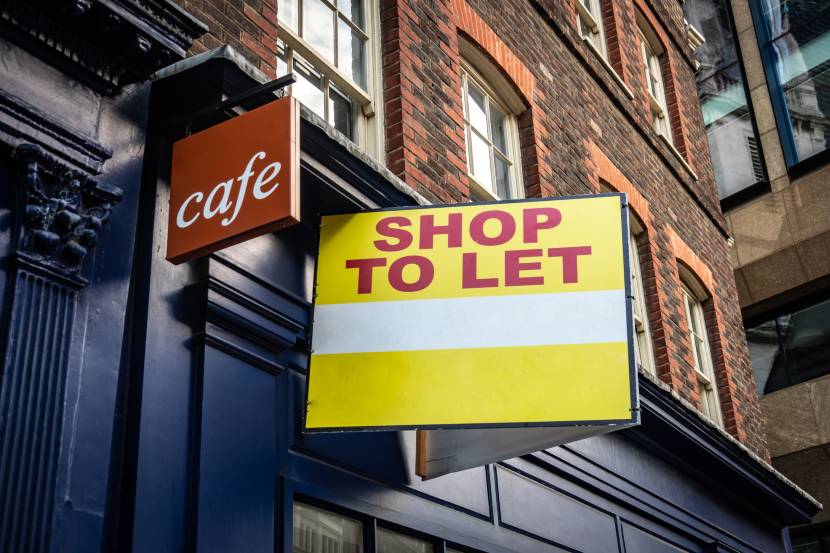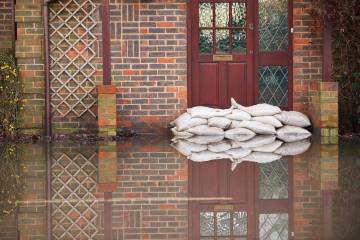If you use a commercial property, it's important to protect it.
If something goes wrong you'll have to fix any damage to your property's structure. Your business could be at risk too. If you're a commercial landlord, you might lose your source of income.
Commercial property insurance can help you cover the cost of damage to your property. We don't compare commercial property insurance, but this guide can explain more about it.

What is commercial property insurance?
Commercial property insurance is a type of buildings insurance policy.
It's designed for owners of buildings that operate as commercial premises, for example shops, cafés, offices or industrial buildings. You can get commercial property insurance if you let the property to a business or run your own from it.
If you're a landlord, there are specific commercial landlord insurance policies, which cover the building from fire, theft and damage.
What does commercial property insurance cover?
Commercial property insurance covers the costs associated with repairing and rebuilding your property.
It covers the bricks and mortar as well as fixtures and fittings against:
- Fire
- Burst pipes
- Flood damage
- Storm damage
- Riot damage
- Theft
You could pay for add-ons such as cover for subsidence and business interruption too, but sometimes they're included as standard.
Public liability cover is another extra you might be able to add. This protects you if your:
- Business premises causes injury to other people
- Any of the activities held in the premises cause injury to other people
- Damage to property
What does commercial property insurance not cover?
As with all insurance policies there are exclusions. These could include:
- Premises that are left unoccupied for longer than a certain period, such as 30 days
- Theft where access isn’t gained by force
- Wear and tear
- The contents of your premises (unless you've taken out additional contents insurance)
- Excess costs
Read your policy documents carefully to find out exactly what isn’t covered and the conditions of the insurance.
What’s the difference between commercial property insurance and business buildings insurance?
Business buildings insurance is broadly the same thing as commercial property insurance, although it tends to mean insurance to cover your own business premises rather than a property you let to another business.
Do I need business buildings insurance if I’m a tenant?
No, you don't need to get cover for the building itself – that's your landlord's responsibility. Speak to them to make sure the building is covered. You might still need to take out business contents insurance, though.
Will business buildings insurance cover me if I work at home?
If you run your business from home, the building might already be covered by your home buildings insurance policy.
This depends on the type of business, though. You might need additional insurance if it involves visitors coming to your home.
You should always let your home insurance company know if you’re running a business from home to make sure you’re covered. If not, you might need to take out a specific business insurance policy.
How much does business buildings insurance cost?
The cost of getting cover depends on a range of factors. These include the nature and size of your business, its location and the type of building.
The higher the rebuild cost of the building, the more expensive the policy is likely to be. It could also cost more if it’s in a flood-risk area or somewhere with a high crime rate.
What are commercial landlords responsible for?
Much of what the tenant or the landlord is responsible for is down to the specifics of the lease.
In some cases, the tenants handle all health and safety. In others, the landlord looks after the ‘communal’ areas.
These are the common areas of responsibility:
- Gas and electricity safety – this could be down to the landlord or tenant, so check your lease. The tenant might be responsible for maintaining the gas appliances while the landlord might have to make sure that the building’s electrics are safe.
- Maintenance and repair – any problems with the structure of the building are up to the landlord to deal with.
- Asbestos – it could be up to the landlord or tenant to manage any asbestos risk.
- Fire safety – this is usually down to the landlord but check your lease.
For more information, check out our guide on landlord responsibilities.
How can I keep the costs of insuring my commercial building down?
Insurance companies work out prices based on risk. So, the greater the risk of damage, the higher your insurance costs could be.
What our home & lifestyle insurance expert says
"One thing you can do is lower the risk that something might happen to the property.
"Make sure the building's security is solid to reduce the risk of a break-in. Installing smoke detectors and fire extinguishers could also reduce the risk of fire.
"And insulating the building's pipes could prevent burst pipes in the winter.
"The lower the risk of you making a claim, the greater your chances of not paying over the odds for your policy."

What other business insurance do I need?
Commercial property insurance covers only the structure and fittings – not the contents of your premises.
So to cover your belongings in the building, such as machinery, computers, office furniture or stock, you could look at taking out business contents insurance.
It can sometimes be taken out in one policy with commercial buildings insurance. But it’s worth comparing the cost of a combined policy as well as two separate policies to make sure you’re getting the best deal.
Even with property you rent out, you might want to consider taking out commercial landlord contents cover if there are any of your own contents inside (although the tenant is responsible for insuring their own contents).
As mentioned above, check to see if your commercial property insurance includes cover for business interruption. This would give you some financial respite if a problem with the building meant you were unable to trade for a period.
If you’re not covered, you might be able to take out a standalone business interruption policy.
Public liability cover, meanwhile offers you protection if your business premises or activities cause injury to other people or damage to their property.
By law, you need to take out employers’ liability insurance as soon as you have any employees. This can help provide compensation if any member of staff gets injured or falls ill as a result of the work they do for you. You can be hit with a hefty daily fine if you don't take this cover out.








